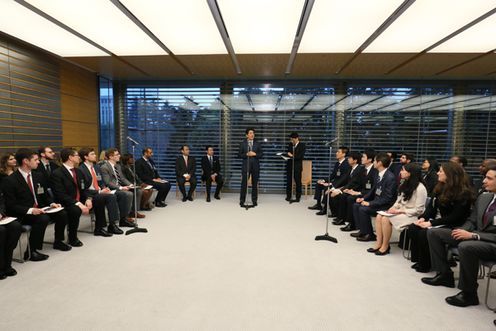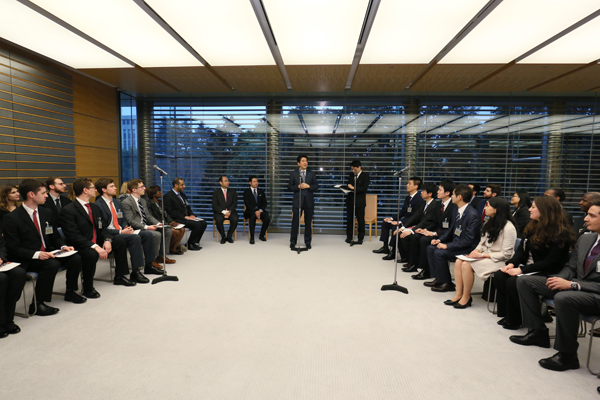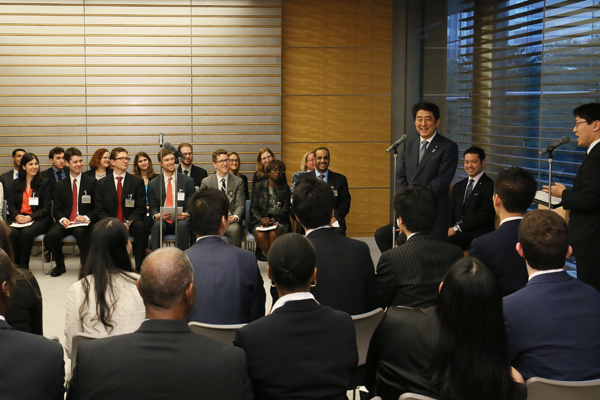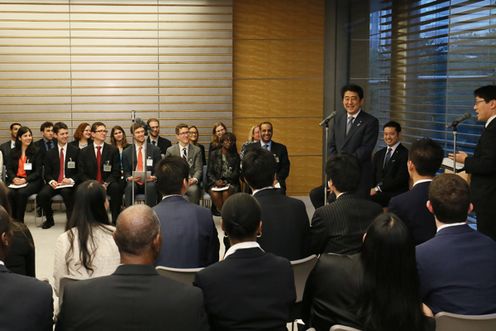Home > News > The Prime Minister in Action > March 2015 > Courtesy Call from Harvard University Graduate Students
The Prime Minister in Action
Courtesy Call from Harvard University Graduate Students
March 19, 2015
[Provisional Translation]
Prime Minister Shinzo Abe received a courtesy call from Harvard University graduate students at the Prime Minister’s Office.
The Prime Minister said in his address,
“Earlier today, I met with Mrs. Michelle Obama, First Lady of the United States. I hear that you had the opportunity to visit Fukushima and will be traveling to Kyoto after this.
I believe many of you who studied at the Kennedy School will become future leaders in the United States, Japan and other parts of the world. Many graduates work here in Japan, such as Diet Members Hosoda and Otsuka with us today. Another graduate, Yasuhisa Shiozaki, is the Minister of Health, Welfare and Labor for the Abe Cabinet.
Just now, I was asked a question about leadership. I believe leadership, borrowing from the words of JFK, means “grace under pressure.” During times of great difficulty and pressure, leaders must act nobly and with grace. Whether I myself have demonstrated these characteristics, however, is a topic for another discussion.
I understand you visited Fukushima. To use the example of Fukushima, the people there live in small communities, and their leaders are making difficult decisions. Recently, two town mayors made decisions to accept polluted top soil and establish interim storage facilities. These decisions were necessary to accelerate the decontamination effort, but the decision-making process must have been very challenging given the opposition by many of their residents. These decisions were reached after patiently persuading local residents, cooperating with the national government.
Leaders or politicians constantly need to make tough decisions when governing. I had a very important decision to make when considering whether to run in the election for the LDP party president, which would lead to my second term as Prime Minister. At the time, I thought about whether I could win this battle or not, and even considered whether, if I failed to win this battle, my political career would come to an end. Many thoughts crossed my mind, but I finally decided to take part in the election because I wanted to do it for the people of Japan. Many of the people around me, including fellow councillors, thought about me and advised me not to run. In the end, my wife told me, “You should make the decision based only on what’s best for the country.” My wife and I often have conflicting political views, but I’m glad I listened to her this time.
There are many difficult decisions to be made in the fields of national security and the economy. I would like to make these decisions while praying that they are correct and the right thing to do. I sincerely hope that all of you capitalize on what you learned at the Kennedy School to make correct decisions in the future.”




